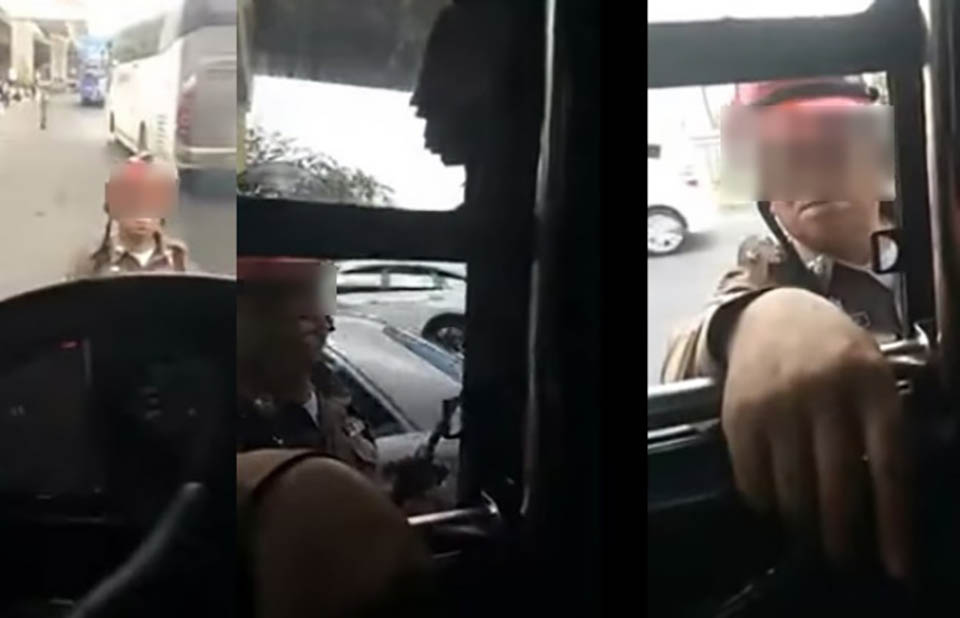
BANGKOK, Thailand – The issue of bribery among traffic police in Thailand is a topic that has long attracted public scrutiny. Accusations of corruption stem from systemic, cultural, and practical issues that make the practice prevalent. Addressing this problem requires a multi-faceted approach involving structural reform, public accountability, and cultural shifts.
Reasons for Accusations of Bribery
Low Salaries and Financial Pressures
Traffic police in Thailand often earn relatively low wages compared to the cost of living. This economic disparity can create opportunities and temptations for officers to seek supplementary income through illicit means, such as accepting bribes from motorists.
Lack of Transparency and Oversight
The enforcement of traffic laws sometimes lacks transparency, with roadside stops being conducted arbitrarily. Drivers may find it easier to pay a bribe than to go through lengthy legal procedures, especially if they are unfamiliar with their rights or the legal process.
Cultural Norms and Acceptance
In some cases, bribery has become normalized as a way to resolve disputes quickly. Many drivers see paying a bribe as a “shortcut” to avoid fines or penalties, perpetuating the cycle of corruption.
Ambiguous Regulations
Traffic laws in Thailand can be vague or inconsistently enforced, leaving room for interpretation by officers. This ambiguity can lead to situations where bribes are solicited or offered to avoid potential penalties.
Quota-Based Systems
Police officers may feel pressured to meet ticket quotas, which can incentivize unnecessary stops. In such cases, bribes may serve as an alternative to issuing formal tickets, benefiting both parties in the short term but undermining trust in the long run.
Ways to Solve the Problem
Increase Salaries and Provide Incentives
Raising the base salary of traffic police and offering performance-based incentives can reduce the financial pressures that lead to bribery. Adequate compensation can deter officers from engaging in corrupt practices.
Implement Technology and Automation
Utilizing technology such as automated traffic cameras, electronic ticketing systems, and mobile payment platforms can reduce direct interactions between officers and motorists. This minimizes opportunities for bribes and ensures penalties are issued fairly.
Strengthen Oversight and Accountability
Establishing independent oversight bodies to monitor police behavior can help reduce corruption. Encouraging the public to report bribery incidents through anonymous hotlines or mobile apps is another way to ensure accountability.
Legal and Procedural Reforms
Simplifying the legal process for disputing traffic violations can discourage drivers from resorting to bribes. For instance, creating online platforms to contest fines or pay penalties can make compliance more convenient.
Public Education Campaigns
Raising awareness about the consequences of bribery and educating motorists about their rights can discourage both parties from engaging in corrupt practices. Media campaigns and public workshops can play a vital role in this effort.
Enforce Strict Penalties for Bribery
Introducing strict penalties for both officers and motorists involved in bribery can serve as a deterrent. Regular audits and undercover operations can also help identify and penalize corrupt practices within the police force.
Foster a Culture of Integrity
Promoting ethical behavior within the police force through regular training and awareness programs can instill a sense of duty and responsibility. Recognizing and rewarding officers who demonstrate integrity can set a positive example.
The accusations of bribery among Thai traffic police are rooted in systemic issues that require comprehensive solutions. By addressing financial pressures, increasing transparency, and leveraging technology, the cycle of corruption can be broken. Building trust between law enforcement and the public is essential for fostering a safer, fairer, and more accountable traffic management system in Thailand.










